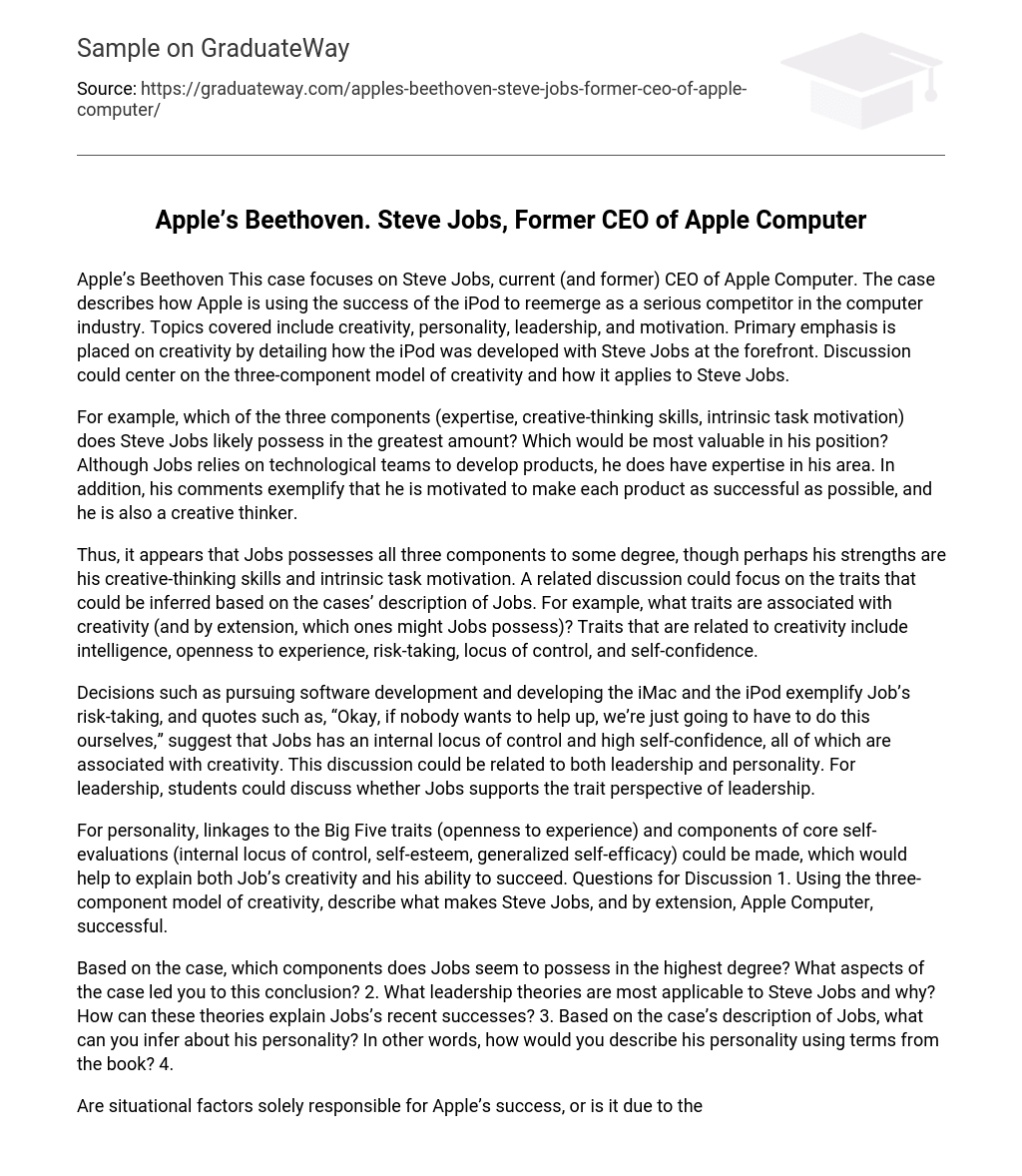Apple’s Beethoven This case focuses on Steve Jobs, current (and former) CEO of Apple Computer. The case describes how Apple is using the success of the iPod to reemerge as a serious competitor in the computer industry. Topics covered include creativity, personality, leadership, and motivation. Primary emphasis is placed on creativity by detailing how the iPod was developed with Steve Jobs at the forefront. Discussion could center on the three-component model of creativity and how it applies to Steve Jobs.
For example, which of the three components (expertise, creative-thinking skills, intrinsic task motivation) does Steve Jobs likely possess in the greatest amount? Which would be most valuable in his position? Although Jobs relies on technological teams to develop products, he does have expertise in his area. In addition, his comments exemplify that he is motivated to make each product as successful as possible, and he is also a creative thinker.
Thus, it appears that Jobs possesses all three components to some degree, though perhaps his strengths are his creative-thinking skills and intrinsic task motivation. A related discussion could focus on the traits that could be inferred based on the cases’ description of Jobs. For example, what traits are associated with creativity (and by extension, which ones might Jobs possess)? Traits that are related to creativity include intelligence, openness to experience, risk-taking, locus of control, and self-confidence.
Decisions such as pursuing software development and developing the iMac and the iPod exemplify Job’s risk-taking, and quotes such as, “Okay, if nobody wants to help up, we’re just going to have to do this ourselves,” suggest that Jobs has an internal locus of control and high self-confidence, all of which are associated with creativity. This discussion could be related to both leadership and personality. For leadership, students could discuss whether Jobs supports the trait perspective of leadership.
For personality, linkages to the Big Five traits (openness to experience) and components of core self-evaluations (internal locus of control, self-esteem, generalized self-efficacy) could be made, which would help to explain both Job’s creativity and his ability to succeed. Questions for Discussion 1. Using the three-component model of creativity, describe what makes Steve Jobs, and by extension, Apple Computer, successful.
Based on the case, which components does Jobs seem to possess in the highest degree? What aspects of the case led you to this conclusion? 2. What leadership theories are most applicable to Steve Jobs and why? How can these theories explain Jobs’s recent successes? 3. Based on the case’s description of Jobs, what can you infer about his personality? In other words, how would you describe his personality using terms from the book? 4.
Are situational factors solely responsible for Apple’s success, or is it due to the traits and leadership skills of Steve Jobs? If both contribute, which do you believe is more important and why? 5. Using Lewin’s Three-Step Model of organizational change, explain Apple’s development of and success with the iPod. 6. Would you characterize Apple as a learning organization? Why or why not? As a manager, what could you do to ensure that Apple continues to be innovative?





